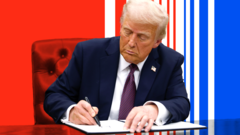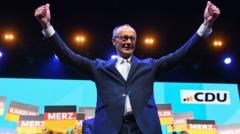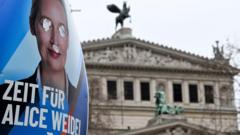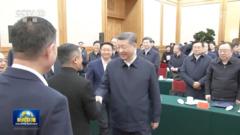Friedrich Merz, a prominent conservative figure and leader of the Christian Democratic Union, is positioned as a leading candidate for chancellor in the upcoming German elections. With a business-oriented approach and political history intertwined with Angela Merkel's legacy, Merz aims to address Europe’s current challenges.
Friedrich Merz: The Conservative Contender for Germany’s Chancellorship

Friedrich Merz: The Conservative Contender for Germany’s Chancellorship
Early exit polls suggest Friedrich Merz, leader of the Christian Democratic Union, could be Germany's next chancellor amid economic concerns and political shifts.
Friedrich Merz, the frontrunner for Germany's chancellorship as indicated by early exit polls, is a seasoned businessman turned politician, currently leading the conservative Christian Democratic Union (CDU). As Germany approaches its elections this Sunday, his candidacy emerges during a period of economic stagnation and political uncertainty in Europe. The 69-year-old Merz, born and raised in the Sauerland region, is known for his controversial political past; he was once ousted from a governmental role by Angela Merkel, with whom he shares party affiliation but little ideological commonality.
Merz's diverse background includes a successful career in the private sector prior to his political re-entry at the age of 63. His business acumen resonates with many voters who are looking for a strong and pragmatic leader to navigate the current economic landscape. Having been first elected to the European Parliament in 1989 and the German Bundestag in 1994, Merz's extensive political experience, paired with his outsider perspective brought about by his years away from office, positions him as a unique candidate.
As a quintessentially old-school politician, Merz contrasts sharply with the modern political style exemplified by Merkel. His candidacy, spotlighted against a backdrop of rising concerns tied to the newly inaugurated Trump administration in the United States, rallies support for a vision of stronger leadership in Europe. The stakes are high as Germany’s political future hangs delicately in the balance, with economic recovery and national unity at the forefront of public discourse.






















